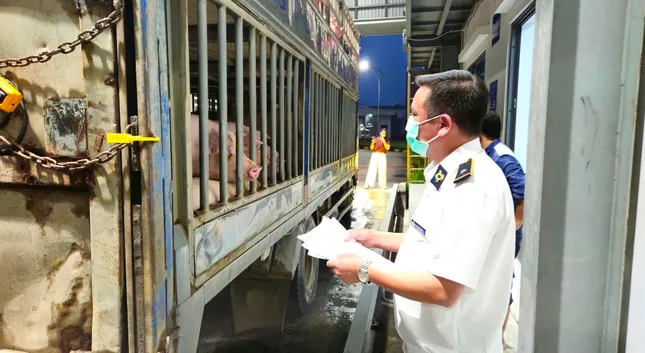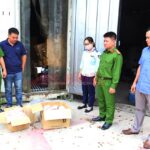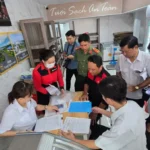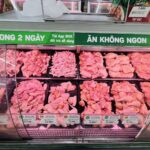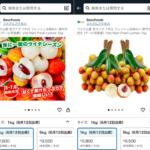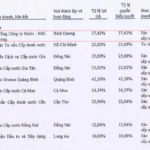On the evening of June 12, an interdisciplinary team from Hanoi inspected the pig slaughtering process at the Hanoi branch of CP Vietnam Livestock Joint Stock Company (NM3 branch, Phu Nghia Industrial Park, Chuong My district).
The inspection revealed that the company has an automated slaughter line with a capacity of 2,000 pigs per day. The slaughter areas are arranged in a technical sequence, ensuring veterinary hygiene and food safety requirements. The slaughter process is closely monitored by officers from the Diagnosis, Testing, and Slaughter Control Station for Animals (under the Department of Livestock, Fisheries, and Veterinary Medicine of Hanoi).
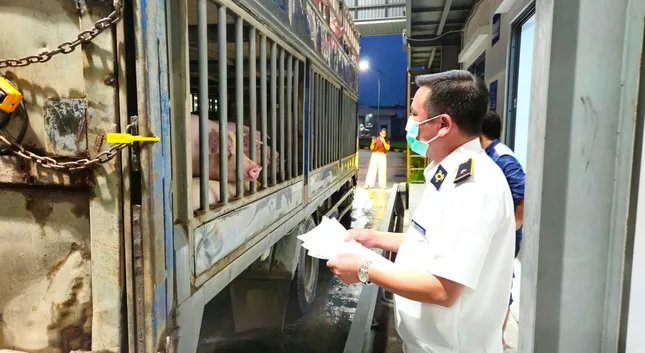
Interdisciplinary team inspecting the pig slaughtering process at CP Vietnam Livestock Joint Stock Company, Chuong My branch (Photo: Anh Duong)
The slaughterhouse has a solid structure, with functional areas clearly separated, and the pig slaughtering process strictly adheres to veterinary hygiene regulations. The waiting pens are spacious and well-ventilated, equipped with cooling and misting systems, modern machinery, and equipment, ensuring safety and hygiene.
The facility owner and direct participants in the slaughtering process have received training and certification in food hygiene and safety practices and comply with personal hygiene regulations. At the time of the inspection, the company was slaughtering approximately 600 pigs.
Previously, on June 5, the Department of Livestock, Fisheries, and Veterinary Medicine of Hanoi also inspected the pig slaughtering process at the NM3 branch of CP Vietnam Livestock Joint Stock Company. On June 4, the Department conducted an inspection of Hanoi Meat Processing Plant to review their compliance with legal regulations regarding poultry slaughtering.
The inspection team concluded that the CP company’s Chuong My branch is in full compliance with legal regulations on poultry and pig slaughtering.
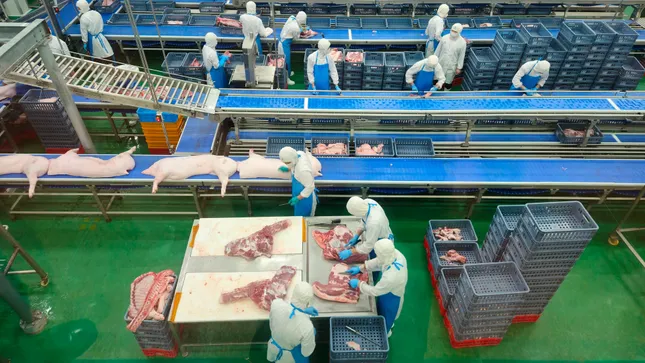
Employees of CP Vietnam Livestock Joint Stock Company performing pig slaughtering (Photo: Anh Duong)
Mr. Nguyen Dinh Dang, Head of the Department of Livestock, Fisheries, and Veterinary Medicine of Hanoi, stated that the city currently has 701 slaughterhouses, 150 of which are under control. The daily meat supply reaches approximately 450 tons.
However, controlling small-scale slaughterhouses remains challenging due to limited personnel, lack of enforcement authority for veterinary services, and the absence of intra-provincial quarantine regulations, making it difficult to trace the origin of slaughtered animals.
In June 2025, the unit plans to inspect 35 slaughterhouses in the city, focusing on districts such as Thanh Tri, Thanh Oai, Chuong My, Phu Xuyen, Thuong Tin, Dan Phuong, Dong Anh, and Gia Lam.
The Frozen Warehouse’s Chilling Secret: A Startling Discovery Unveiled.
“A shocking revelation has come to light, as a warehouse owner has confessed to selling tons of expired chicken, pork, and sausage. These unfit meats were destined for restaurants, eateries, and industrial food processing companies, putting countless people at risk. This disturbing practice raises serious concerns about food safety and the potential impact on public health.”
“Green Mall: Vigilantly Monitoring the CP Incident, Strengthening Quality Control”
“Amidst the recent developments regarding the suspension of CP pork products by numerous retail chains, Bach Hoa Xanh has issued an official statement justifying its continued sales of the aforementioned goods. In this statement, Bach Hoa Xanh provides insights into its decision-making process and sheds light on the factors that led it to maintain the availability of CP pork for its customers.”
“Celebrating World Food Safety Day in Vietnam, 2025”
Food safety issues in Vietnam, such as microbial contamination, chemical residues, and illegal additives, need to be addressed to improve public health and enhance the competitiveness of Vietnamese agricultural products in the international market.


























